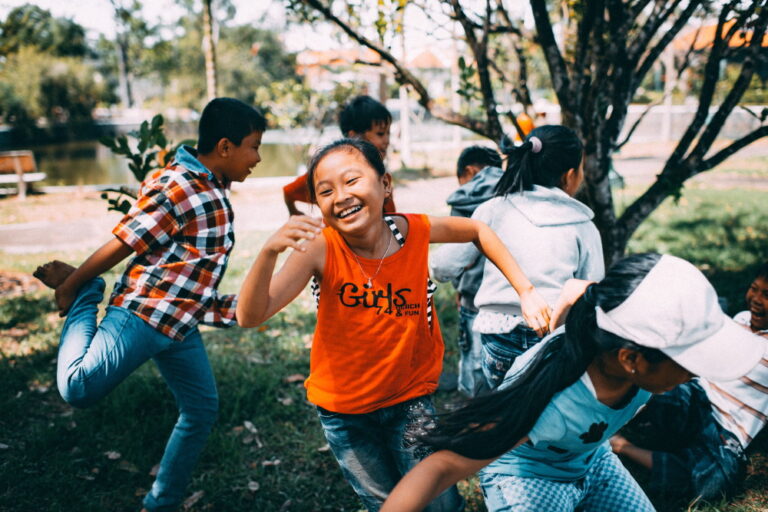Summers are magical; at least they used to be before the pandemic. When school finished, kids would spend the whole day playing outside.
Eventually, boredom starts setting in. Some kids become glued to the couch and their phones or the video game console. It’s unhealthy and unpleasant for the parent who has to clean up after them all day.
Summer camp was invented with good reason. If you used to send your kids to camp before the pandemic, it might be time to reinstate that habit, especially with pandemic restrictions easing.
Camps are fun and Build Character
Summer camps are the perfect way to balance unstructured days outside school. They make it possible to make new friends and reconnect with old ones. Children can remain intellectually engaged by discovering new and constructive interests, like app design or game development.
Here are some tips on how to choose the right summer camp.
Define “Right”
What do you expect your kids to get from camp? Do you want them to meet new friends or learn something new? Look for a specialized camp that teaches something they enjoy.
You probably want them to stay involved throughout the summer months, mainly if their school year has been chaotic. A camp with academic elements will keep them occupied intellectually, balancing that out with fun free-time activities.
In the selection process, consider your child’s age. For tweens, summer activities are different than for small kids or teens. Some teens will shudder at the idea of summer camp. If that’s the case with yours, consider a sports academy or a pre-college summer program.
Choose Instructors Carefully
As a step in the way of precaution, you could run a background check on an instructor to confirm they are the best choice. The instructors can make or break summer camp for your child. While it’s not easy to determine the quality of an instructor in advance, it’s not impossible. Most camps have information about their instructors on their websites, listing their skills and qualifications. They might even offer interviews with staff or instructor profiles.
Read reviews from parents and students to get a first-hand account of the instructors. You could call your potential camp of choice and ask for more information or talk to other parents about their experience with the instructors.
Know the Types of Camps
There are five types of summer camps, broadly speaking: conventional, academic, art, athletic, and adventure camps. The conventional kind hardly needs clarification. If your parents sent you to camp as a child, you might remember time outdoors, archery, sitting by the fire, etc. The camp might even have been single-gender. It probably helped build character and self-confidence in a traditional outdoor setting.
Academic
Who says children should stop learning when school ends? Lifelong learning is a core principle today. Academic camps offer a combination of educational and fun activities. Many such camps teach topics or subjects most schools can’t or won’t teach, helping the child develop skills in lucrative, high-demand course areas.
Art
These camps offer the opportunity to explore one’s artistic interests outside of school in a group. The focus might be on drawing, painting, or the visual arts. More tech-based programs teach children about 3D printing or graphic design.
Adventure
If you strongly suspect you’re raising the next Bear Grylls, look no farther than an adventure camp. These camps are engaging, fun, and the best way to explore new experiences. They’re a bit like a conventional outdoor camp, but with a focus on exploring and expeditions.
Athletic
Finally, athletic camps are perfect for athletic children who want to learn new skills. They are a suitable option for younger and older children.
Set a Budget
It goes without saying you should set a budget. More specifically, it would help if you determined the desired outcome. You’ll find a massive variation in summer camp prices, and that’s no coincidence. The price is just one component. Camp is an investment that can have huge returns for your child. They have a lot to gain: independence, confidence, etc. Look at the potential benefits and decide if the price is worth paying.
Consider the Vibe, Tone, and Setting
Some art, sports, and academic camps collaborate with experts to create a special vibe and inspire. The devil’s in the details. Look at the traditions, how the program appeals to participants, the style of text and word choice, and how and where the camp takes place. Ideally, the maximum number of children per instructor should be 10.
Conduct Due Diligence
You can talk about the courses and programs with a staff member, read reviews, browse sites, visit a local camp fair, or even visit the camp facilities. Don’t forget to ask people you know for suggestions. Ask other parents where they send their children. You can trust a personal recommendation as an accurate sign of what your child’s experience will be like. What’s more, children always love going to the same camp as their friends.




